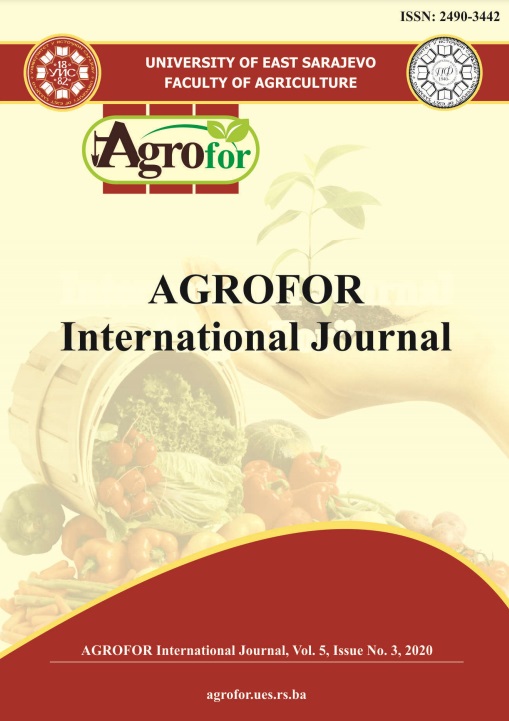THE CHOICE OF CLIMATE CHANGE ADAPTATION STRATEGIES PRACTICED BY CASSAVA-BASED FARMERS IN SOUTHERN NIGERIA
DOI:
https://doi.org/10.7251/AGRENG2003119HAbstract
The study on choice of climate change adaptation strategies practiced by cassavabased
farmers was conducted in Southern Nigeria. The following specific
objectives were achieved: to ascertain the perceived effects of climate change in
the study area and to determine factors influencing the choice of using climate
change adaptation strategies by cassava-based farmers in the study area. Data were
obtained through the administration of questionnaire to 300 randomly sampled
cassava-based farmers in the study area. Data were analyzed using descriptive
statistics such as mean, frequencies, percentages and inferential statistics such as
Multinomial Logit Regression technique. The result revealed that farmers
perceived increase in flood incidence (91.33%), drought (90.67%), high incidence
of pests and diseases (55%) and low yield (50%) as the effects of climate change in
the study area. Also, from the results, 58% of the farmers chose not to employ the
use of climate change adaptation strategies while only 42% decided to choose
using climate change adaptation options in the study area. The result also showed
that age of the farmer, farming experience, gender, marital status, level of
education, household size, access to credit, access to agricultural extension services
and membership of association were the factors influencing the choice climate
change adaptation strategies used by the farmers. The study concluded that socioeconomic
attributes of the farmers affected their choice of climate change
adaptation strategies. Policy should be targeted at designing climate change
adaptation technology to farmers as well as providing the enabling environment
that would encourage them to employ it.

